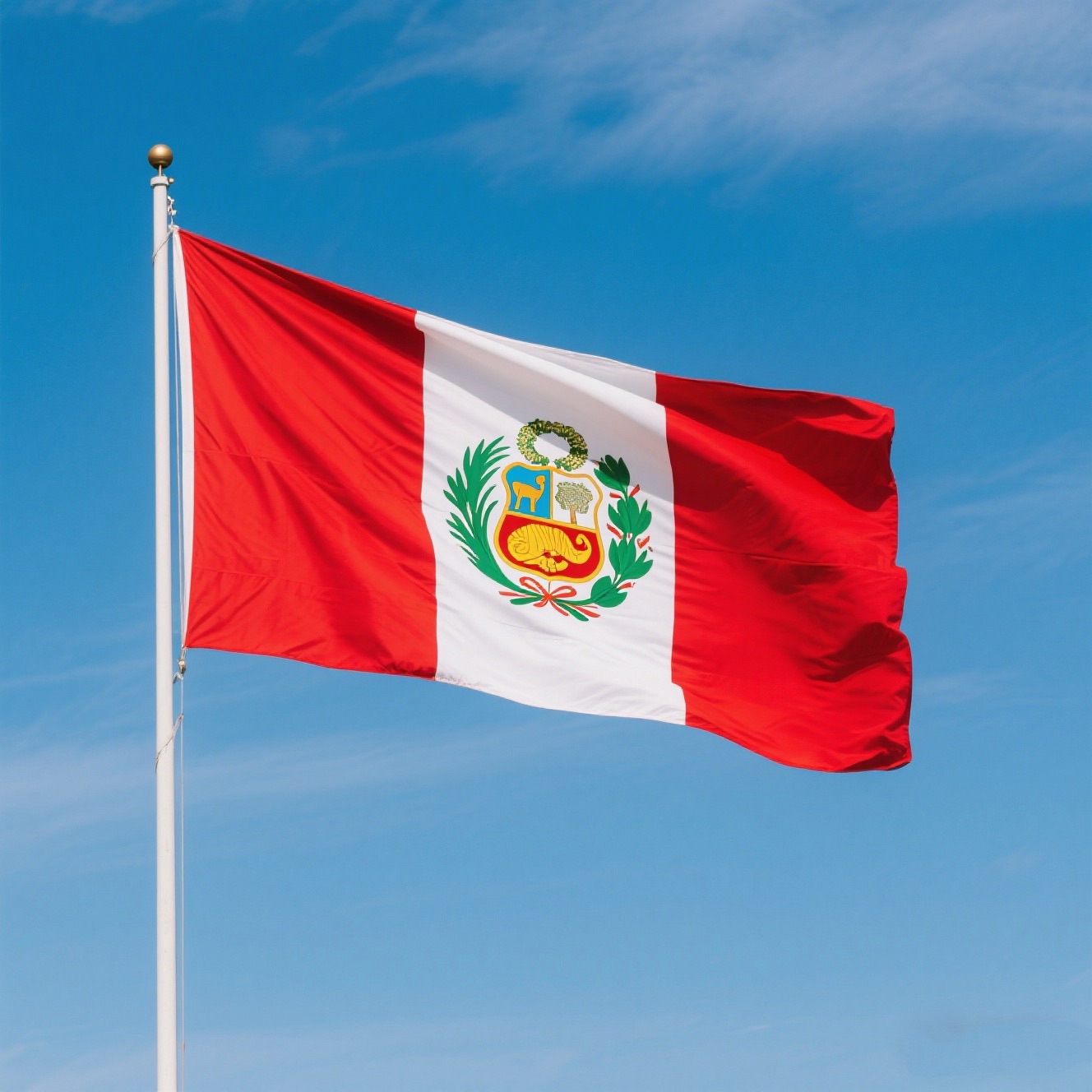
Expanding into the Middle Eastern Market: Essential Product Categories to Avoid
“Expanding into the Southeast Asian market requires a deep understanding of local culture, consumer habits, and legal regulations, avoiding a one-size-fits-all strategy. Significant differences exist among countries, such as religious taboos, payment preferences (cash-dominated), and logistics infrastructure, necessitating tailored localized strategies. At the same time, emphasis should be placed on digital marketing and social media channels (e.g., Facebook, TikTok), building trust-based relationships, while paying attention to data compliance and the selection of local partners to mitigate policy risks.”
I. Non-Halal Goods Involving Religious Taboos
Core Risk: Violating Rigid Stipulations of Islamic Law
Among the 22 countries in the Middle East, 18 have Islam as the state religion. The dietary regulations outlined in the Quran are not merely cultural customs but carry legal force. For instance, countries like Saudi Arabia and Iran explicitly classify "violating halal standards" as illegal in their Trade Laws. Non-compliant products will not only be seized and destroyed, but companies may also face penalties for "disrupting religious order," which can even affect their future eligibility to enter the regional market.
Three high-risk product categories requiring special attention:
1. Meat and Meat Products:
•Strictly Prohibited: All pork and its derivatives (e.g., ham, bacon, pastries containing lard, pigskin gloves) are banned for import regardless of intended use. A company once had a shipment of pigskin work gloves detained in Oman.

•Conditionally Permitted: Beef, lamb, and poultry products without HALAL certification are non-compliant even if slaughtered according to halal methods. This includes frozen meats and canned meat products.
2. Alcohol and Related Products:
•Explicitly Banned: Alcoholic beverages such as baijiu, beer, etc. (completely prohibited in Saudi Arabia and Kuwait; sale restricted to specific channels in the UAE).
•Implicitly Non-Compliant*: Cooking wine with an alcohol content exceeding 0.5%, mouthwash with alcohol over 0.1%, and alcohol-based perfumes require additional submission of a "non-drinking purpose declaration."
3. Composite Food Products:
Candies containing non-halal gelatin, instant noodles with lard-based seasoning packets, etc. Even if the main ingredients are compliant, non-compliant auxiliary materials will lead to the entire batch being judged as non-halal.
Real Case Warning: Total Loss of Goods and High Fines
In 2024, a Zhejiang-based company exported 1,000 cases of pre-mixed cocktails with 5% alcohol content to Saudi Arabia. The shipment was detained by the Saudi SFDA upon arrival at Jeddah Port. Although the company attempted to apply for a "non-drinking certificate," the product labels failed to indicate "not for drinking." Ultimately, the entire shipment was incinerated, and the company was fined USD 200,000 (approximately 67% of the goods' value). It was also added to the Saudi Customs "key monitoring list," resulting in an 80% inspection rate for its shipments over the next three years.
Three-Step Compliance Advice:
1. Certification First: Food products must obtain target country-recognized HALAL certification (e.g., Saudi SFDA, UAE ESMA). The certification process takes about 2-3 months and costs USD 2,000-5,000 per category. Non-food items containing animal ingredients (e.g., leather products) require additional proof of halal source issued by a mosque.
2. Packaging Standards: Outer packaging must display "HALAL" labels in both Arabic and English, along with the certification number. Ingredient lists must be bilingual, clearly indicating sources such as "halal beef fat" or "plant-based gelatin."
3. Differentiate National Policies: Strict alcohol-prohibiting countries like Saudi Arabia and Iran are not suitable for exporting alcohol-related products. In limited-openness regions like the UAE and Qatar, alcoholic products must be sold through licensed importers and are restricted to hotel and restaurant use only, with retail sales prohibited.
II. Sensitive Goods Violating Cultural Customs
Core Risk: Dual Constraints of Religion and Tradition
Cultural taboos in the Middle East are rooted in Islamic teachings and local traditions. Products involving "body exposure, blasphemy against religious images, or violation of ethics" are met with zero tolerance. Violations can lead not only to confiscation of goods but also public boycotts. Companies may even be blacklisted and permanently excluded from the market. In 2024, over 20,000 batches of imported goods were seized due to cultural sensitivity issues in the Middle East, involving USD 120 million, 70% of which were from small and medium-sized enterprises (SMEs) that unintentionally violated regulations due to insufficient understanding.
Major sensitive categories include:
1. Apparel:
Women's clothing must adhere to the "modesty principle." Items such as spaghetti strap tops, skirts shorter than knee-length, and backless dresses are strictly prohibited. Children's clothing should also avoid off-shoulder designs and overly short pants. A Guangzhou-based company had 1,000 off-shoulder children's dresses detained in Tehran. Men's clothing must not feature patterns related to drinking or gambling; T-shirts with beer patterns have been destroyed in Saudi Arabia.

2. Audio-Visual and Cultural Creative Products:
The use of any religious figures (including cartoon forms) is prohibited, such as religious dolls, unapproved books, and Mecca-themed tapestries. Statues involving "idol worship" and celebrity posters are also restricted in Saudi Arabia and Iran. A Yiwu-based company exporting football star posters to Iraq had them detained for "promoting personality cults."
3. Gifts and Accessories:
Pig imagery and cross-shaped accessories, such as cartoon pig ornaments and cross necklaces, are strictly forbidden. Hidden taboos also require attention: products featuring the Israeli flag or Jewish symbols (e.g., the Star of David) are considered "politically incorrect" in Arab countries. Items printed with wine bottle patterns are also likely to be rejected due to association with alcohol.
Typical Case: Loss of Goods and Public Apology
In March 2024, a Guangdong toy company exported 1,000 sets of "cartoon dolls of religious figures" to the UAE. After arriving at Dubai Port, the shipment was reported. Consequences included: ① issuing an apology statement in *Gulf News*; ② incineration of all dolls; ③ a fine of USD 50,000 (33% of the goods' value). The company ultimately lost CNY 150,000 and was permanently delisted from the UAE e-commerce platform Noon, barring it from formal market entry.
Preventive Measures and Recommendations:
1. Apparel Design Following the "Modesty Principle": Women's clothing is recommended to feature "high necklines, long sleeves, below-knee skirts, and matching headscarves." Such products can sell up to 5,000 sets per month on Noon. Men's clothing should opt for solid colors or geometric patterns, while children's clothing should be loose and fully covering, with skirts at least 5 cm below the knee.
2. Use Safe Elements in Cultural Products: Prioritize traditional Arab patterns, dates, desert themes, etc. A company that changed religious figure toys to date-themed designs saw a 40% sales increase in Qatar.
3. Localized Review: Collaborate with local agents possessing cultural consulting qualifications to review design drafts before production. Saudi Arabia has strict requirements for religious texts, while the UAE and Qatar are relatively lenient. Review fees range from USD 500-1,000 per category, effectively avoiding losses.
III. Electronic and Electrical Products Not Complying with Local Standards
Core Risk: Stringent Technical Regulations and Voltage Adaptation Requirements
Middle Eastern countries have independent and mandatory standards for electronic products. Goods lacking certification, voltage adaptation, or proper labeling will not only fail to clear customs but may also face recalls and fines due to safety hazards. In 2024, such non-compliant goods accounted for over 25% of violations, with 60% attributed to negligence by SMEs. The average loss per batch exceeded CNY 80,000, and rectification took 2-6 months, severely impacting cash flow.
Common non-compliant products include:
1. Electrical Appliances without Mandatory Certification:
Saudi Arabia requires SASO certification, the UAE requires ESMA certification, and Qatar requires QSA certification, covering large and small household appliances. A Shenzhen company exported robot vacuum cleaners without ESMA certification to the UAE; 500 units were detained in Dubai. Due to the four-month recertification process and high costs, the entire shipment was destroyed, resulting in a loss of CNY 200,000.
2. Products with Voltage Incompatibility:
The Middle East has complex voltage standards: parts of Bahrain and Qatar use 110V, while Saudi Arabia and the UAE use 220V. Appliances supporting only a single voltage are unusable. A Zhejiang company exported electric kettles only compatible with 220V to Qatar. Although the shipment cleared customs, all units were returned due to voltage incompatibility, resulting in round-trip shipping and restocking costs exceeding CNY 120,000.
3. Equipment Lacking Arabic Labeling:
Product interfaces and manuals must include Arabic, with critical warnings highlighted. A Jiangsu company exported projectors with only Chinese and English interfaces to Saudi Arabia; 300 units were detained. Relabeling and reprinting manuals cost CNY 30,000, and delayed delivery led to a CNY 50,000 compensation claim.
Case Analysis: Major Losses Due to Certification Misjudgment
In May 2024, a Jiangsu home appliance company exported 200 air conditioners to Qatar, mistakenly using Saudi SASO certification as a universal standard without obtaining QSA certification. The shipment was detained upon arrival at Doha Port. The company had to resubmit samples for testing (1.5 months), recertify (CNY 30,000), install dual-voltage modules (CNY 40,000), and pay port demurrage fees of CNY 20,000, incurring additional costs exceeding CNY 100,000. A three-month delay also resulted in the loss of a long-term customer order.
Compliance Operation Recommendations:
1. Plan Certification in Advance:
Select appropriate certifications by country: Saudi SASO (2-3 months, USD 2,000-5,000 per category), UAE ESMA (online fast review, ~1 month), Qatar QSA (local testing required, 3-4 months). Third-party agencies like SGS or TÜV can be commissioned to reduce risks.
2. Broad Voltage Adaptation:
Design products to support 110V-220V broad voltage and clearly mark the voltage range on the body. For single-voltage markets, explicitly state this in contracts to avoid shipping errors.
3. Labeling Compliance with Local Requirements:
Use Arabic font no smaller than size 8, with key function buttons bilingual. Manuals must include installation, usage, and safety warnings, with safety alerts highlighted in red and bold. Local translation agencies are recommended to ensure linguistic accuracy.









